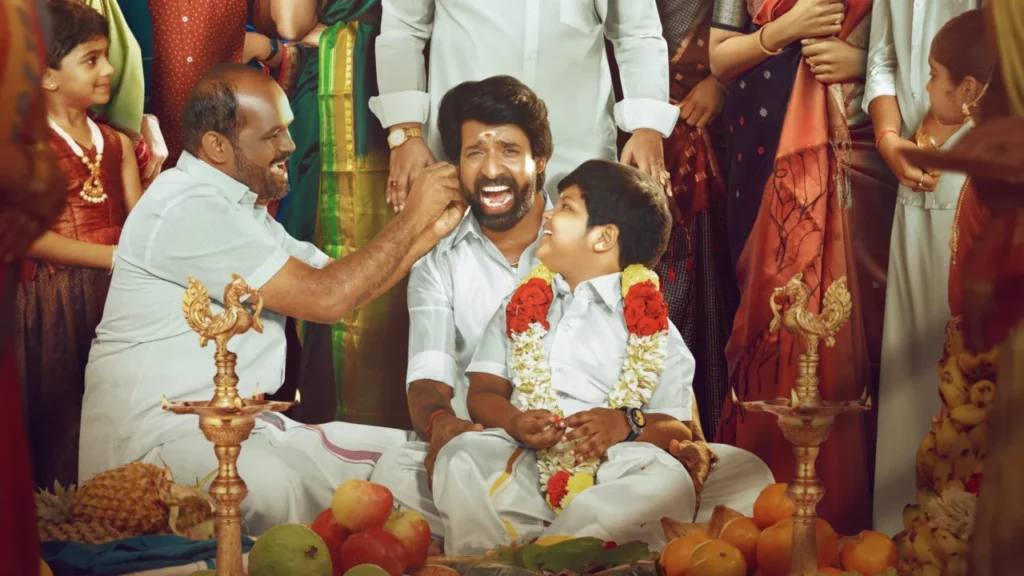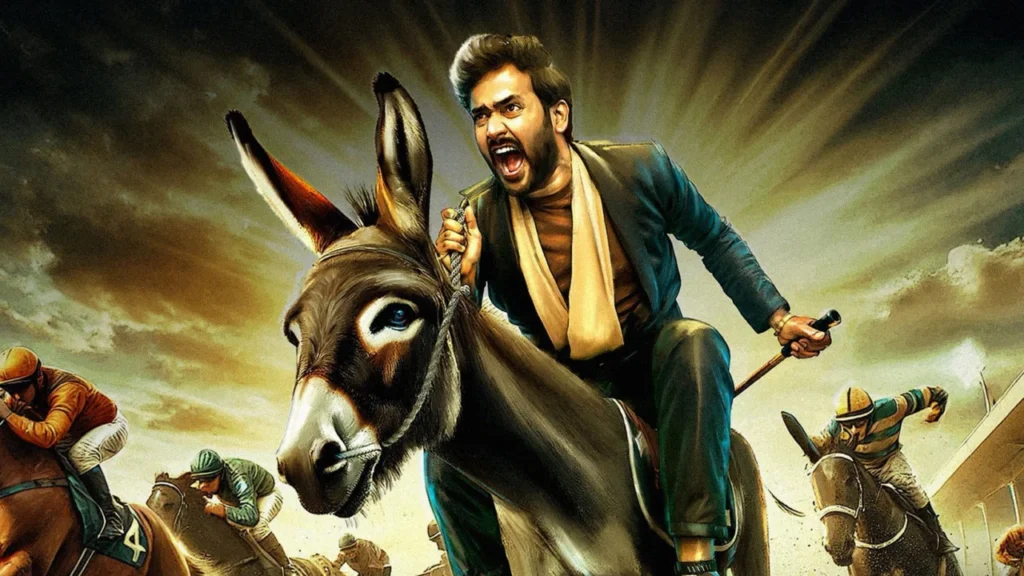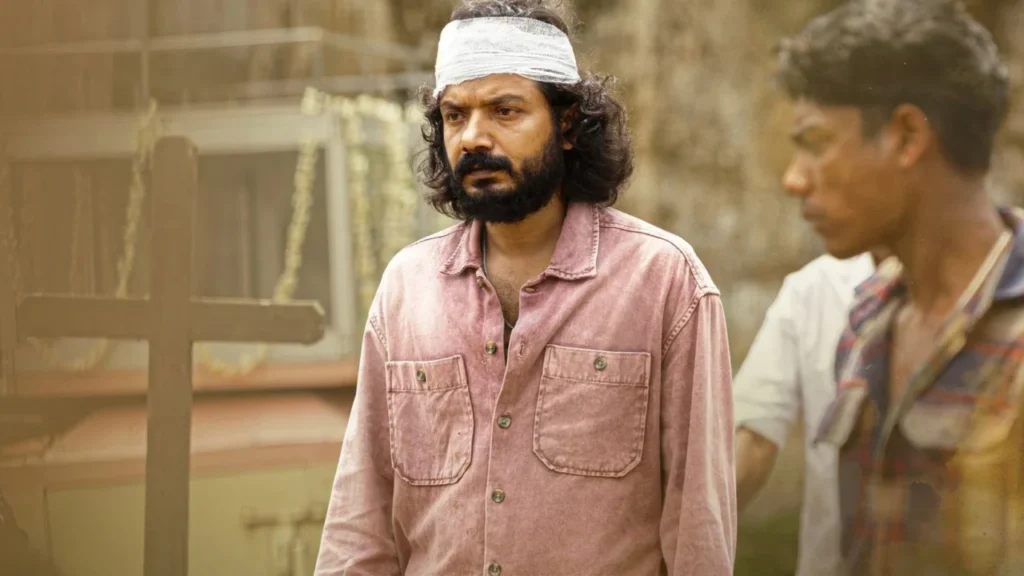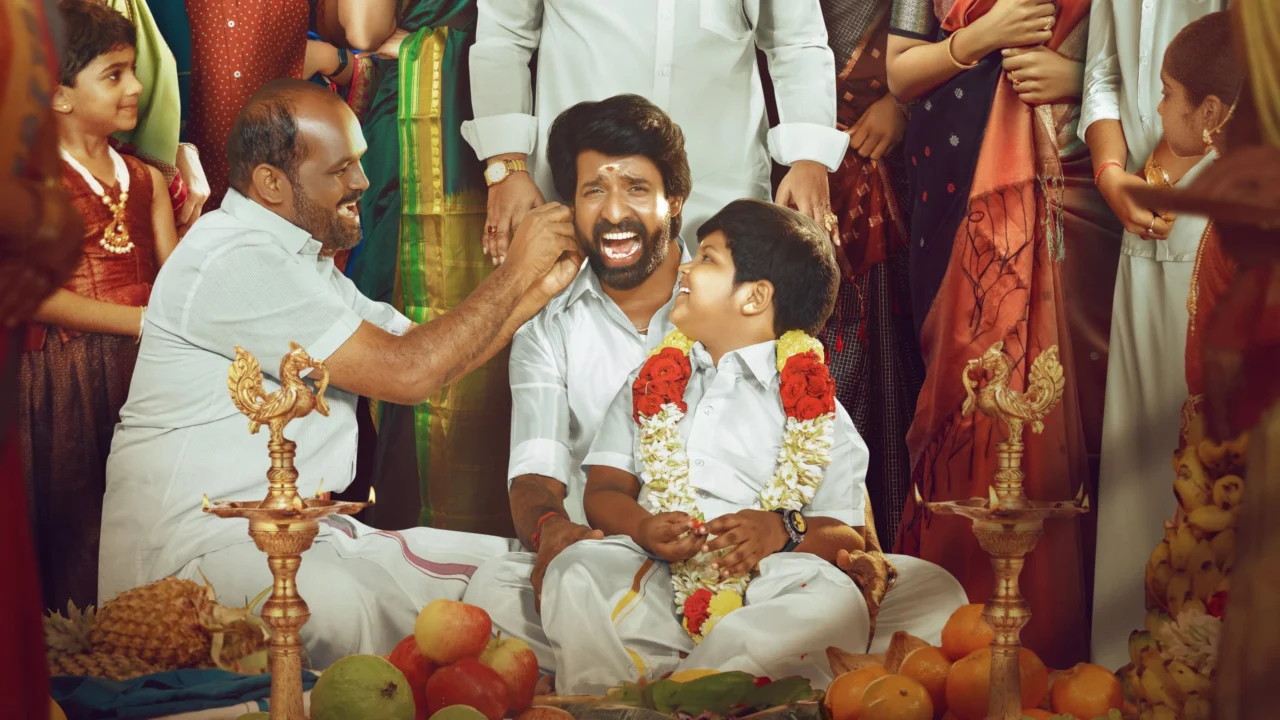
Maaman (2025) REVIEW: Soori’s Dramatic Turn Deserves Your Attention
Maaman brings us back to the roots of Tamil cinema’s strength – family storytelling. Director Prasanth Pandiyaraj takes charge of this emotional journey that hit theaters on May 16, 2025.
The film puts Soori front and center, supported by Aishwarya Lekshmi, Swasika Vijay, and Rajkiran. This isn’t your typical laugh-riot featuring Soori; instead, it’s a serious dive into family bonds and relationships.

Plot and Storyline
The story centers around a mother’s brother and his relationship with his sister’s son. What starts as simple family ties becomes complicated when old wounds resurface and hidden feelings come to light.
We follow Girija’s journey in Trichy, where she endures constant criticism for not having children after a decade of marriage. Her struggles become the catalyst for larger family conflicts that test everyone’s patience.
Soori’s character becomes the bridge between different family members. He tries to keep peace while managing his own life challenges and the expectations placed on him by relatives.
The script tackles modern-day problems that many Indian families face. Issues like childlessness pressure, changing family dynamics, and the weight of traditions create the film’s emotional backbone.
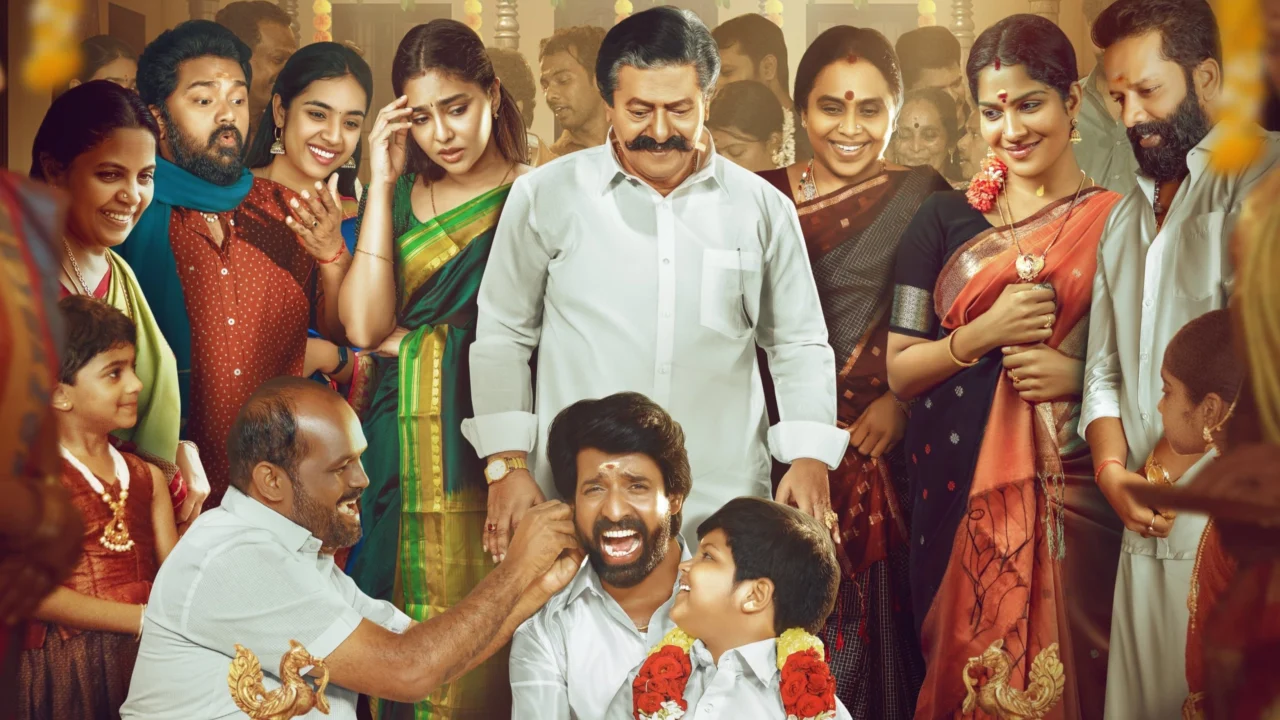
Cast Performance
Soori transforms completely from his usual comic timing to serious dramatic acting. This role proves he can handle emotional scenes with the same skill he brings to comedy sequences.
Aishwarya Lekshmi matches his energy perfectly, bringing both vulnerability and strength. Her character feels real and relatable, especially when dealing with family pressures and personal disappointments.
Young Laddu steals several scenes with his natural acting. The child artist brings genuine innocence that makes the family moments feel more authentic and heartwarming.
The supporting cast, including Swasika and Rajkiran, creates a believable family unit. Each actor brings their own flavor to the story without overshadowing the main narrative.

Direction and Technical Aspects
Prasanth Pandiyaraj handles the subject with care but sometimes lets emotions run too high. The film works best when it stays subtle and lets characters speak through actions rather than words.
Family dramas need careful balance, and this one occasionally tips toward heavy melodrama. Some scenes feel like they’re pushing too hard for tears instead of letting them come naturally.
The music score supports the story without overwhelming it. Visually, the film captures middle-class Tamil family life with honest simplicity that feels comfortable and familiar.
I noticed the screenplay tries to address too many issues at once. This makes some storylines feel rushed while others drag longer than necessary.
What We Liked
Soori’s performance stands out as the film’s biggest strength. Watching him navigate serious emotions while keeping traces of his natural charm creates a memorable character.
The film doesn’t shy away from real problems that families face today. Infertility shame, generational gaps, and changing traditions get honest treatment without being preachy.
Several scenes feel genuinely touching, especially when characters make small sacrifices for each other. These quiet moments work better than the louder emotional scenes.
I appreciated how the story shows different perspectives within the same family. Not everyone is purely good or bad; they’re just people trying to do their best.
What Could Be Better
The biggest issue is the film’s tendency toward excessive drama. Many scenes would work better with lighter touch instead of pushing emotions to maximum volume.
Pacing problems affect the viewing experience significantly. Some parts move too slowly while important character developments feel rushed or incomplete.
Certain character motivations don’t feel fully developed. We understand what they want but not always why they want it or how they came to these decisions.
I felt the ending wraps up conflicts too neatly. Real family problems take time to resolve, and this quick-fix approach doesn’t match the film’s realistic setup.
Critics and Public Reviews
IMDb users gave the film a 6.0 rating, showing mixed reactions. Some viewers loved the emotional storytelling while others found it too predictable for their taste.
Film critics praised individual performances, especially Soori’s dramatic turn. However, many pointed out that the story follows familiar patterns without adding fresh perspectives.
Early premiere screenings earned positive responses with 3.5/5 ratings. Audiences appreciated the sincere attempt to show real family dynamics and contemporary social issues.
Public reactions vary widely. Some call it “heartwarming family entertainment” while others describe it as “melodramatic” and too similar to older Tamil family dramas.
Final Verdict
Maaman succeeds in creating emotional connections through strong acting and relatable family situations. Soori proves his range as an actor, making this worth watching just for his performance.
The film works best for viewers who enjoy traditional family stories with modern touches. If you appreciate character-driven narratives over fast-paced entertainment, this might appeal to you.
While it doesn’t break new ground in Tamil cinema, it tells its story with genuine heart. The family dynamics feel real enough to remind you of your own relatives and their quirks.
I’d recommend this to anyone looking for sincere family drama that doesn’t rely on artificial conflicts. Despite some flaws, it offers enough emotional truth to make the experience worthwhile.
Rating: 3/5

